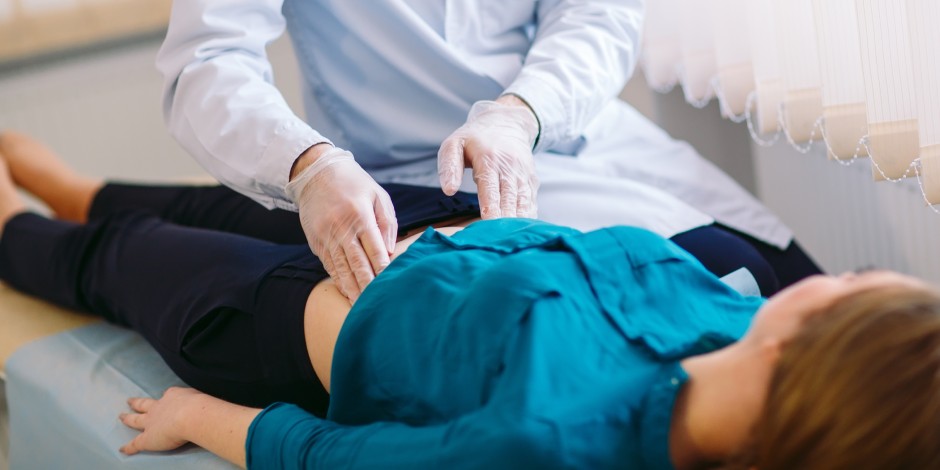Health System Urges New Yorkers Aged 45 and Up to Get Screened for Colon Cancer – New York City Health and Hospitals

NYC Health + Hospitals Urges New Yorkers to Get Life-Saving Colorectal Cancer Screening Starting at Age 45
Easy, convenient, non-invasive fecal immunochemical test (FIT) now widely available option in addition to traditional colonoscopy.
Colorectal cancer is the second-leading cause of cancer death in New York City, but can be preventable and treatable with early screening.
New York, NY
In recognition of Colorectal Cancer Awareness Month, NYC Health + Hospitals today urged all New Yorkers to begin life-saving colorectal cancer screening starting at age 45. Many New Yorkers may have delayed cancer screenings because of the COVID-19 pandemic. Routine screenings can prevent colorectal cancer or help find it early, when it is easier to treat. When colorectal cancer is detected at an early stage, the 5-year relative survival rate is about 90 percent; however, only 4 out of 10 colorectal cancers are found at this early stage. There are several different types of screenings, including the traditional colonoscopy and the fecal immunochemical test or FIT. While the former is for patients at higher risk for the disease, FIT is ideal for those at lower risk. FIT is significantly more convenient than a colonoscopy, which requires a special diet, sedation, and recovery. FIT requires only a stool (feces) sample that can be collected at home. Patients can request a fecal immunochemical test from their NYC Health + Hospitals primary care provider or by calling 1-844-NYC-4NYC to set up an appointment.
“Too many New Yorkers have postponed colon cancer screenings because of the COVID pandemic. There’s no reason to put it off any longer, especially now that we have the easy, convenient FIT tests widely available and can be done at home if recommended by your doctor,” said NYC Health + Hospitals President & CEO Mitchell Katz, MD. “We’ve made significant progress addressing colorectal screening disparities among ethnic groups and reducing barriers to care. But we must continue to raise awareness and make sure that all eligible New Yorkers have access to this life-saving screening regardless of their immigration status or ability to pay.”
“It’s imperative that all New Yorkers over the age of 45 get screened for colon cancer, particularly our Black and brown communities,” said NYC Health + Hospitals Vice President and Chief Population Health Officer Nichola Davis, MD, MS. “According to the American Cancer Society, African-Americans are about 20 percent more likely to get colon cancer and about 40 percent more likely to die from it than most other groups. This is preventable. If you are 45 or older, please talk to your provider about getting screened.”
Each year in New York City, approximately 1,100 adults die from colorectal cancer (also known as colon cancer) and more than 3,500 are newly diagnosed. Colorectal cancer affects men and women of all racial and ethnic groups. New Yorkers are more likely to get colorectal cancer if they:
Are older (the older you get, the higher your risk)
Had colorectal cancer or polyps previously, or if you have a family history of colorectal cancer
Have certain inherited risks, such as familial adenomatous polyposis or Lynch syndrome
Have ulcerative colitis or Crohn’s disease
Do not exercise regularly
Have obesity
Drink alcohol
Smoke
Routine screenings can prevent colorectal cancer. There are several different types of screenings. Stool-based tests such as FIT can be done at home by collecting a stool (feces) sample using a test kit and sending the kit to a lab. This test is quick and requires little or no preparation and has no health risk. The patient’s provider will receive the results from the lab and then follow up with the patient to explain the results. If the result is abnormal, a follow-up traditional colonoscopy may be necessary. More than 23,000 primary care patients at NYC Health + Hospitals completed a FIT last year, a nearly 60 percent increase from 2020.
The traditional screening, a colonoscopy, requires a small, long tube with a camera that is inserted into the colon and rectum. It requires a special diet the day before and medication to empty the colon. Patients are generally sedated for the procedure. A colonoscopy can both detect cancer and remove polyps – small growths that may develop into cancer if left alone. A colonoscopy has a low risk for complications and is usually painless.
Most insurance plans, including Medicaid and Medicare, cover colorectal cancer screenings starting at age 45. Consult a health care provider about colorectal cancer risk and with the insurer about coverage before the screening test.
New Yorkers who do not have insurance, may be eligible to sign up for free or low-cost coverage through the NY State of Health Marketplace. Additionally, NYC CARE is a health care access program for those who are not eligible for insurance or cannot afford it, call 1-646-NYC-CARE to learn more. The program guarantees free and low-cost services to New Yorkers who do not qualify or cannot afford health insurance, including access to the screenings discussed above.
New Yorkers can also contact the New York State Cancer Services Program, which provides colorectal cancer screening to uninsured New Yorkers ages 45 and up.




